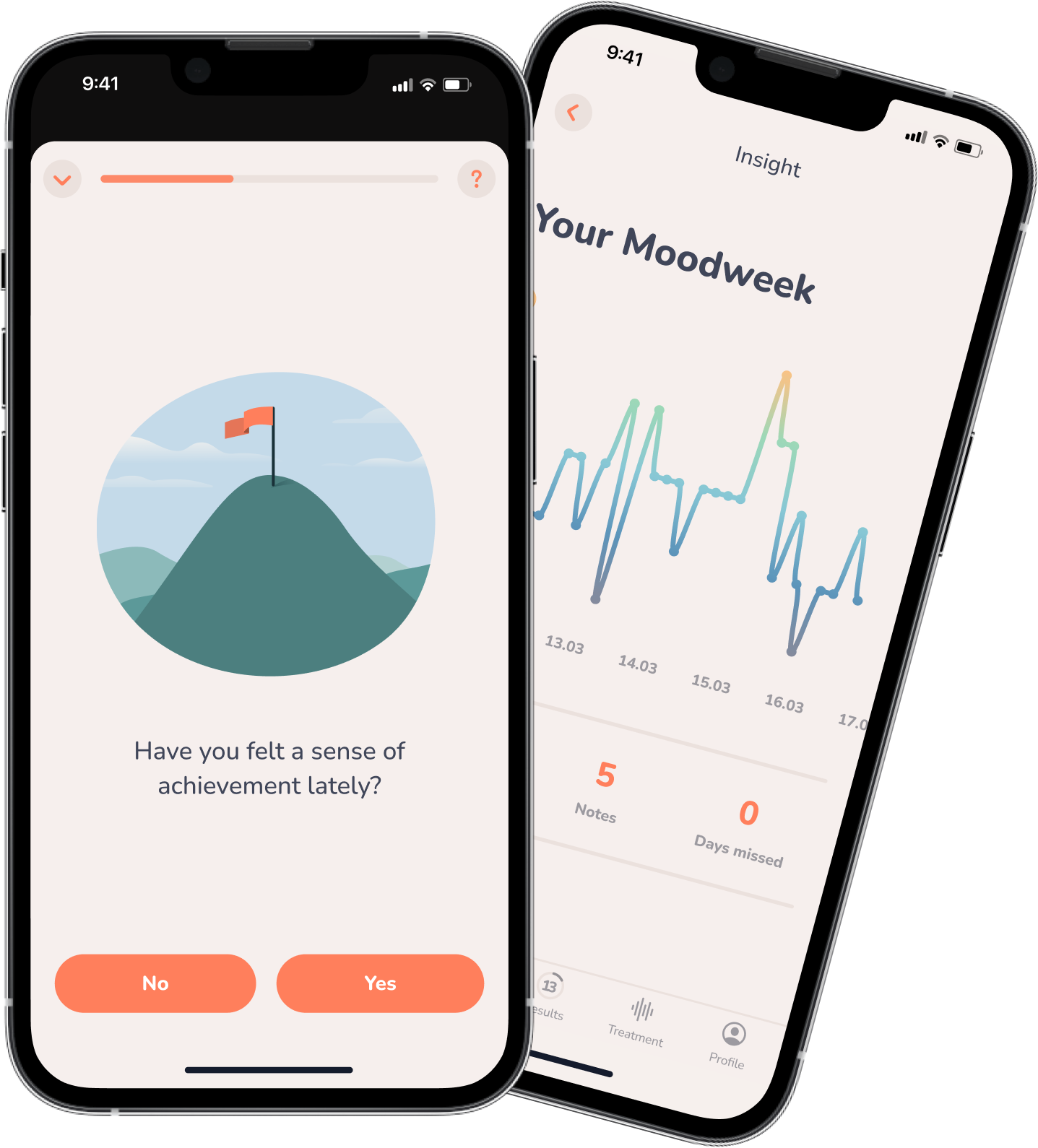Insight
The Causes of Depression – Searching for Answers
Why do only some people suffer from depression? What are the causes of depression and will they always lead to depression?
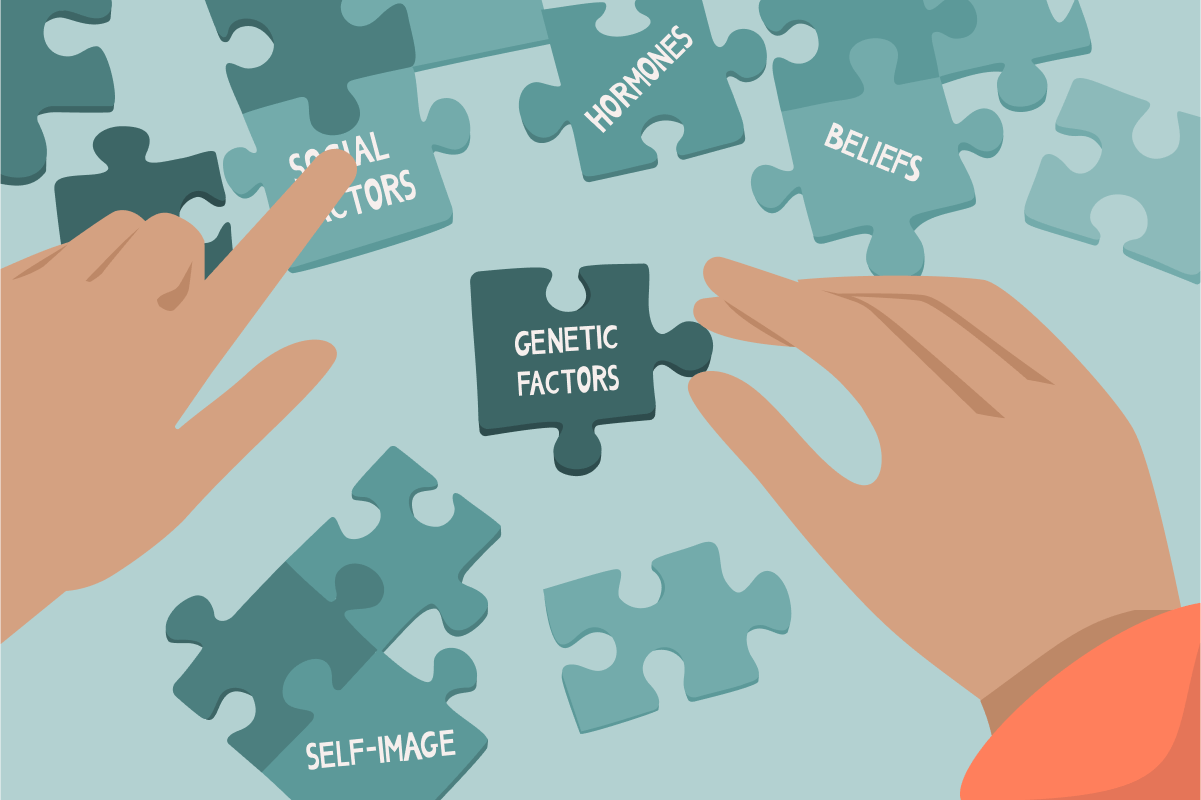
Why the Causes of Depression Can Feel So Urgent
Those affected by depression can lose joy in even their favorite activities, suffer from sleep and concentration problems, or lose their appetite, to name just a few symptoms. Often they don’t even know why they’re experiencing this. Lacking an explanation can feel so exhausting. Without an explanation it can be very difficult, both for those affected by depression and their relatives, to accept and deal with depression. Sometimes an answer to the “why?” can make the “what?” more bearable.
An Interplay of Causes of Depression – The Biopsychosocial Model
However, depression cannot be traced back to one cause. Rather, its development is defined by the interplay of different, overlapping and intertwined causes – which makes things more complicated.
Through research, we have found three important factors that influence each other and ultimately, influence depression. This is called the biopsychosocial model of depression.
- Psychological causes: Negative cognitive patterns, beliefs, and self-image
- Biological causes: Neurotransmitters, hormones, and genetic factors
- Social factors: Burdening experiences and difficult life phases
1. Psychological Causes of Depression – The Power of the Mind
Humans make many experiences over the course of their lives, which shape the way they perceive and evaluate life. These so-called “cognitive schemata” (= thinking patterns) influence our self-esteem, self-image, and our everyday well-being.
Negative cognitive patterns lead to a distorted perception and interpretation of daily situations: We might hold attitudes such as “I always have to be perfect” or “I can’t be a burden to anyone”. Or maybe we interpret any negative outcomes as our fault and any positive outcomes as mere luck from the outside.
There are numerous negative cognitive patterns, but what they all have in common is their power to destroy. If these cognitive schemata become an intrinsic part of the way we perceive the world, it will surely take a toll on our joy and, over time, can become a cause of depression.
This will be one of the important things to examine during psychotherapy. What are the cognitive patterns I have? How do they make me feel and act? Are they realistic or useful to me? Where do they come from? Do I want to think this way?
2. Biological Causes of Depression
There are different biological processes going on in our body that can have an impact on depression and can also be impacted by depression. Sleep disorders, for example, don’t only add to the chance of developing depression – depression adds to the chance of developing a sleep disorder.
Thus, the biopsychosocial model makes sense: our biology influences our behavior and our behavior influences our biology. It’s a “chicken or egg?” scenario, that makes simple-seeming answers quite complicated.
The three biological causes of depression we will examine are what goes on in our 1. brain cells, 2. hormones, and 3. genes.
2.1. Biological Causes in Our Brain
Our brain contains billions of nerve cells, also called neurons. Between these cells, signals are sent from and to each other with the help of neurotransmitters – the little chemical substances used for communication between the cells. Serotonin or noradrenalin are examples of neurotransmitters.
During depression, often our brains’ metabolism (including these neurotransmitters) has lost its balance. And this dysfunction has severe consequences for our feelings and thoughts. Experiences like joylessness, depressed mood, unreasonable feelings of guilt, sleep disorders, fatigue, and loss of appetite – common symptoms of depression – can be the expression of an imbalance of serotonin (and other transmitters) in our neurons.
In these cases, antidepressants can be useful. They are intended to improve and reestablish the healthy balance of neurotransmitters in our brain. Studies show that successful psychotherapy has the same positive effects on the brain.
2.2. Biological Causes – What’s the Influence of Stress?
Hormonal changes accompany depression as well. Very often those struggling with depression have constantly elevated stress hormone levels (for example cortisol). In fact, stress and depression are connected: Those feeling overwhelmed by their stress are more likely to suffer from depression and vice versa.
Higher levels of hormones can lead to anxiety and fear, they can influence our concentration, sleep, and appetite. Again, these are official symptoms of depression. Especially women are affected in times of hormonal changes. This occurs for example, after birth, when postpartum depression affects roughly 20% of all mothers.
Due to these biological connections, physical causes must always be excluded in the case of depressive symptoms. For example, thyroid levels should be checked to ensure that other underlying causes aren’t responsible for the depressive episode.
2.3. Biological Causes – Does Depression Run in the Family?
Research and twin studies indicate that genetic influences have a part in depression and pose an increased risk for family members. However, there is no ultimate “depression gene” and these studies also show that there is an important interaction between genetic and social factors.
In other words, just because your family member struggles with depression doesn’t mean that you are bound to struggle with it as well. It means you’re at risk – but all the other factors play their part as well.
3. Social Causes of Depression – Our Environment and Life Experiences
A genetic risk becomes higher in combination with social factors. If, for example, we had a rough childhood, experienced a lot of bullying, a severe lack of parental support, or even abuse, this can make us more vulnerable and influence our cognitive schemata, the way we perceive the world. Likewise, continuous strain or conflicts with others at work, at home, or with ourselves can lead to increased helplessness over time.
Additionally, critical life events, such as the loss of a loved one or unemployment could throw us off track and send us down a negative depression spiral. Intense transition phases, like the transition from college into our first job, can give us the feeling of instability or of being lost.
A healthy social structure, with friends or family that support us and give us the feeling that we are “safe” is important in all this. In other words, if our psychological needs aren’t fulfilled, this will have a negative effect.
Does the Cause of Depression Matter in the End?
Sadly, there is no psychological X-ray that can tell us exactly where the fracture is and what probably caused it. Although we know that all these factors, statistically speaking, have an impact on the onset of depression – on the individual level it will be impossible to know the perfect “formula” for one’s onset of depression.
However, creating an individual explanatory model, by going through one’s own personal experiences and understanding what added to the onset of depression, is an important part of therapy. And an important step in moving past and preventing depression in the future.
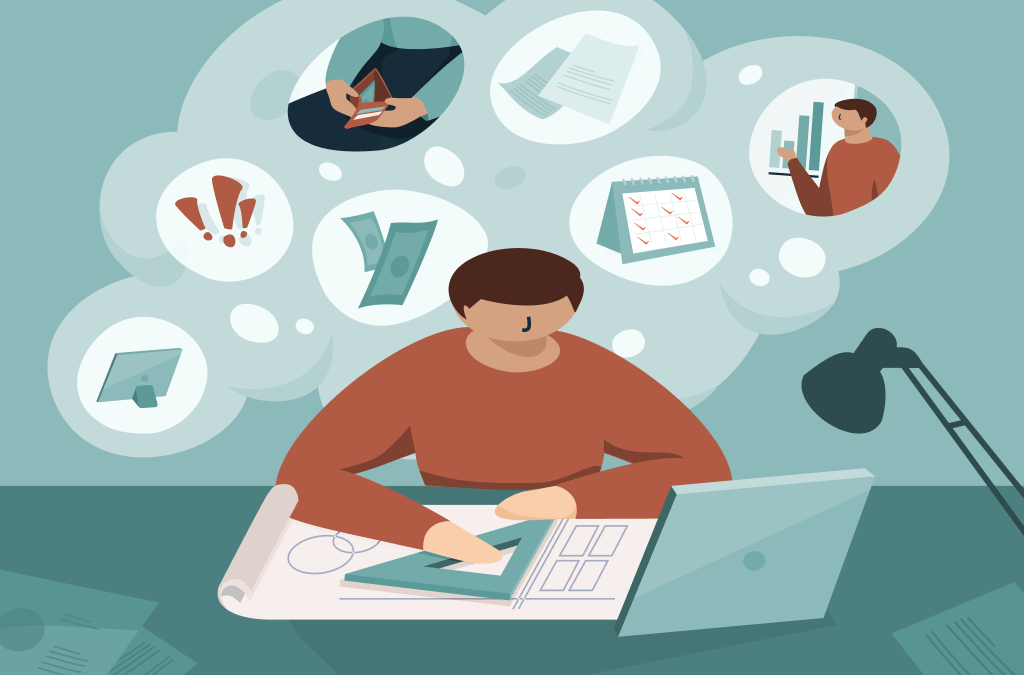
Psychological Needs in the Workplace: How to Meet Them
Deadlines, conflicts, pressure to perform—many people grapple with stressors at work. The extent to which these weigh on someone depends in large part on whether psychological needs are being met at work.
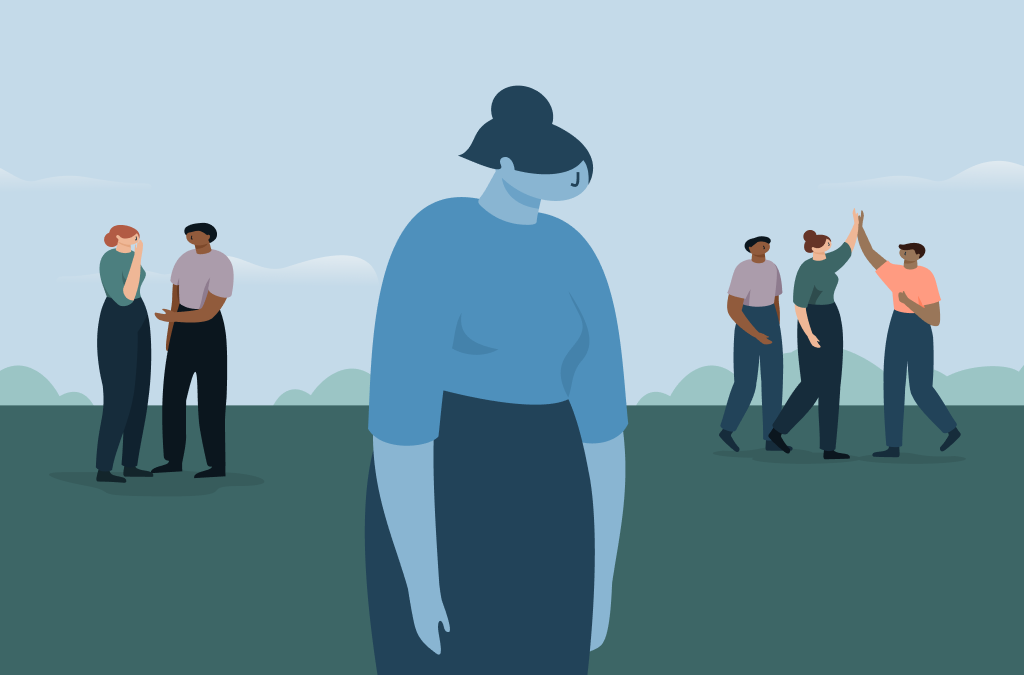
High-Functioning Depression: The Hidden Suffering
When people think of depression, usually intense sadness, low energy, social withdrawal, difficulty getting out of bed, and managing daily life come to mind. But this is not always the case.
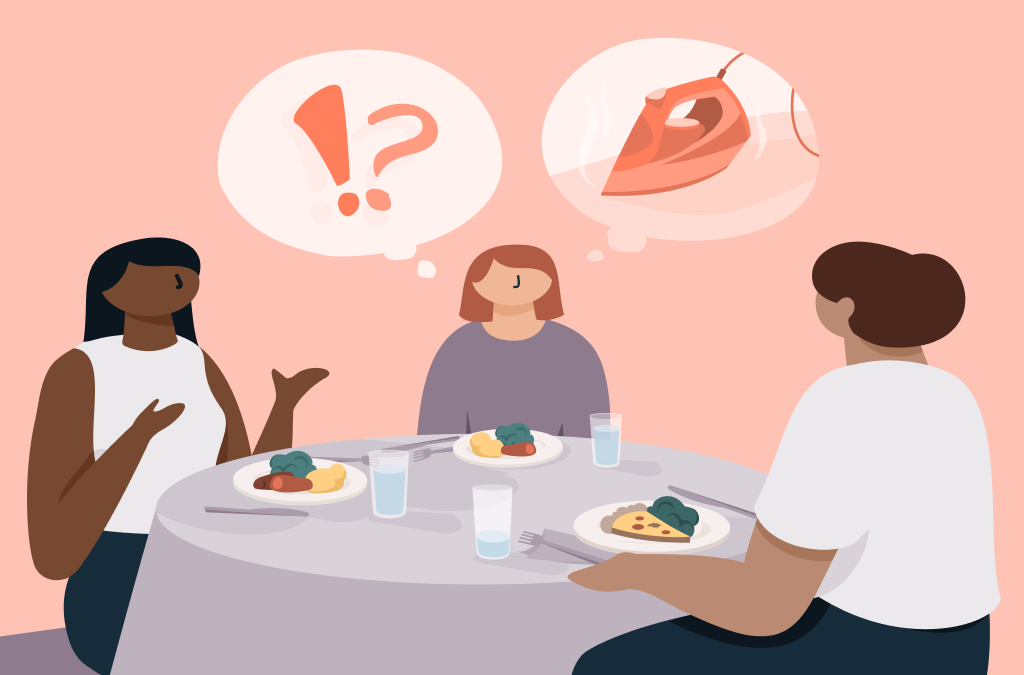
Obsessive-Compulsive Disorder: When Thoughts and Actions Become Torture
In this article, we explore what characterizes such thoughts and behaviors as well as how they can be treated.
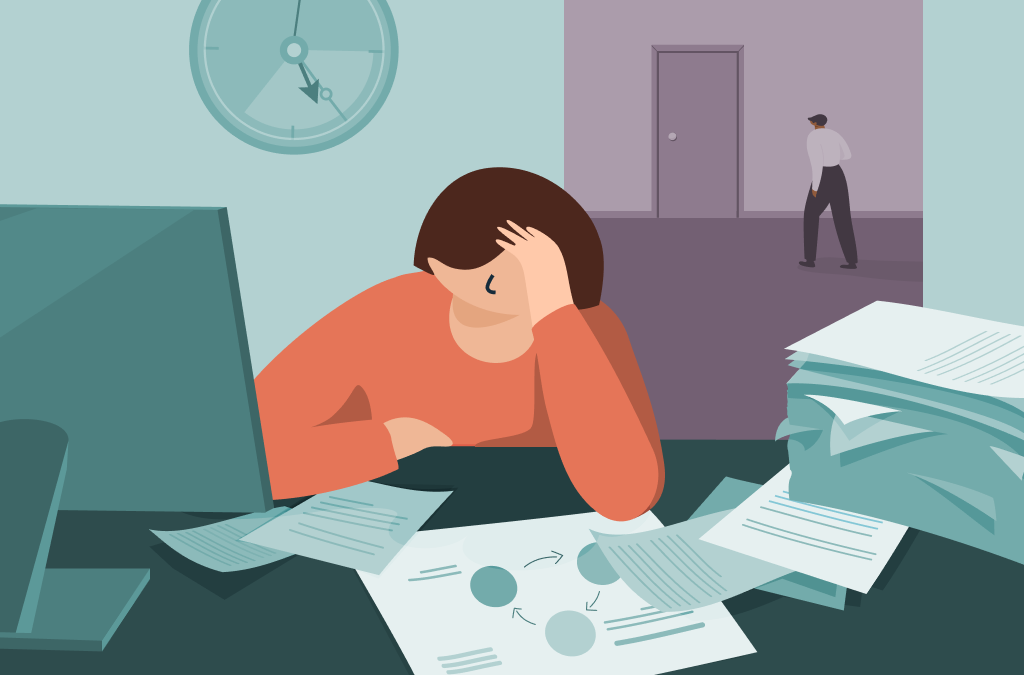
Bullied at Work—Here’s What You Can Do!
In this article, we look at the nature of workplace bullying, its causes and consequences, and what you can do if you are being bullied at work.



